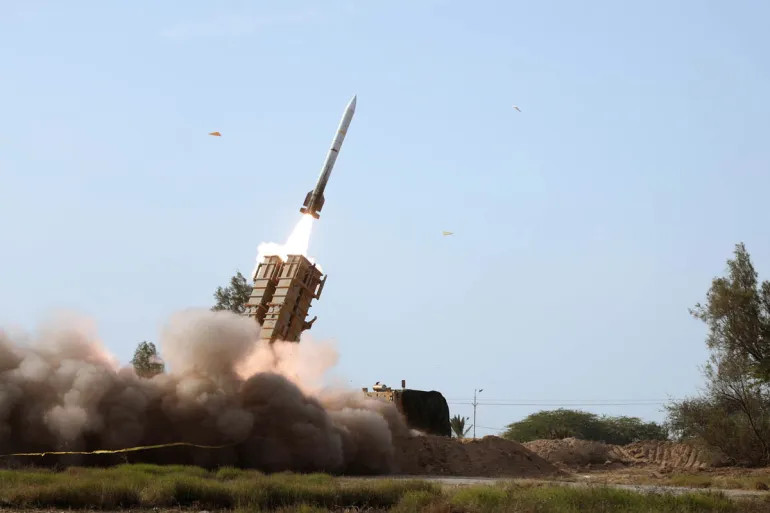Israeli Prime Minister Benjamin Netanyahu says his country’s air attack on Iran last month hit “a component” of Tehran’s nuclear programme and degraded its defence and missile production capabilities.
“There is a specific component in their nuclear programme that was hit in this attack,” Netanyahu said in a speech in Israel’s parliament, the Knesset, on Monday without providing details on the element hit.
“The programme itself and its ability to operate here have not yet been thwarted,” he added.
On October 26, Israeli fighter jets launched three waves of strikes targeting Iranian military assets, weeks after Iran had fired about 200 ballistic missiles at Israel, saying its attack was in response to Israel’s killings of Hezbollah leader Hassan Nasrallah in the southern suburbs of Beirut and Hamas leader Ismail Haniyeh in Tehran.
At the time of Israel’s attack, Supreme Leader Ali Khamenei said the strikes “should not be exaggerated nor downplayed”. United States President Joe Biden said before the strikes took place that he would not support an attack on Iranian nuclear sites, which would open up the possibility of an even further escalation in the region.
In addition to the claim of an attack on Iran’s nuclear programme, Netanyahu also said in Monday’s speech – which was interrupted by family members of Israeli captives held in Gaza – that three Russian-supplied S-300 surface-to-air missile defence batteries stationed near Tehran had been hit.
Netanyahu said Russia had supplied four of the defence batteries to Iran and the other one had been destroyed during an exchange of direct attacks between Iran and Israel in April.
Iran has not commented on the Israeli claims.
Last week, Iranian President Masoud Pezeshkian told the head of the International Atomic Energy Agency (IAEA), Rafael Grossi, that his government was prepared to address concerns about its nuclear programme before US President-elect Donald Trump’s inauguration in January.
Grossi said achieving “results” in nuclear talks with Iran was vital to avoid a new conflict in the region already inflamed by Israel’s wars on Gaza and Lebanon, stressing that Iranian nuclear installations “should not be attacked”.
Stepping up sanctions
Netanyahu gave his speech as the European Union and the United Kingdom on Monday expanded their sanctions against Iran over its alleged support for Russia’s war on Ukraine.
In a move decried by Tehran, the EU said it will prohibit the export, transfer, supply or sale from the EU to Iran of components used to make missiles and drones.
It also banned any transactions with ports “owned, operated or controlled” by sanctioned individuals and entities or otherwise used to supply Russia with drones, missiles, related technology and components.
“This measure includes the access to facilities of the ports and locks, such as Amirabad and Anzali, and the provision of any services to vessels,” the EU said in a statement, referring to two Iranian ports on the Caspian Sea.
As the bloc’s foreign ministers met in Brussels, it also adopted restrictive measures against Iran’s state-run shipping company IRISL, its director Mohammad Reza Khiabani and three Russian shipping firms accused of ferrying weapons across the Caspian Sea.
Brussels had already imposed sanctions on prominent Iranian officials and entities, including airlines, accused of aiding Russia’s war effort.
Acting in parallel, Britain also announced new sanctions against Iran, freezing the assets of IRISL as well as national airline Iran Air for allegedly transporting ballistic missiles and military supplies to Russia for use in Ukraine.
The British Foreign, Commonwealth and Development Office also said the Russian cargo ship Port Olya-3, sanctioned for carrying missiles from Iran to Russia, would not be allowed to enter any UK port.
“Iran’s attempts to undermine global security are dangerous and unacceptable,” Foreign Secretary David Lammy said in a statement in advance of announcing the sanctions at the United Nations Security Council. “Alongside our international partners, we were clear that any transfer of ballistic missiles from Iran to Russia would face a significant response.”
The decision follows a previous round of sanctions against Iran and Russia that the UK announced in September alongside Germany and France.
Before the new sanctions announcement, Iranian Foreign Minister Abbas Araghchi said on Sunday that the EU was using a “nonexistent missile pretext” to target its shipping lines.
“There is no legal, logical or moral basis for such behaviour. If anything, it will only compel what it ostensibly seeks to prevent,” Araghchi wrote on X.
Iran’s economy has been struggling under the weight of US sanctions imposed after Washington’s unilateral withdrawal from a landmark nuclear agreement between Iran and world powers in 2018.
On Monday, Iran’s Ministry of Foreign Affairs spokesman Esmaeil Baghaei said Tehran would respond in due course.










![Edmundo Gonzalez addresses a gathering of supporters outside of the Organization of American States on January 6 in Washington, DC [Jacquelyn Martin/AP Photo]](https://esbecgroup.com/wp-content/uploads/2025/01/Venezuelan-opposition-candidate-claims-son-in-law-has-been-kidnapped.jpg)